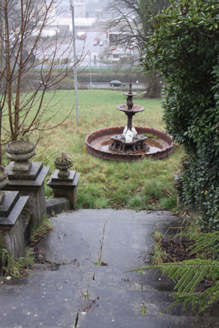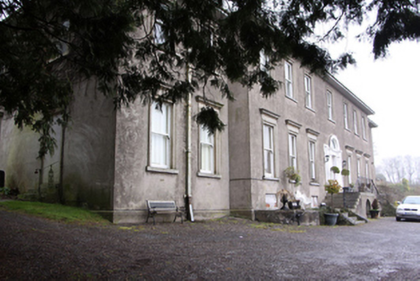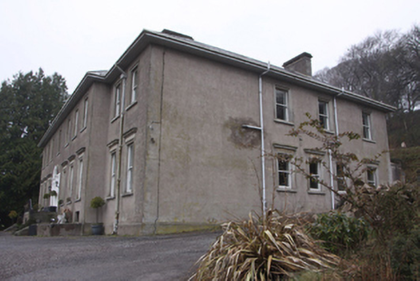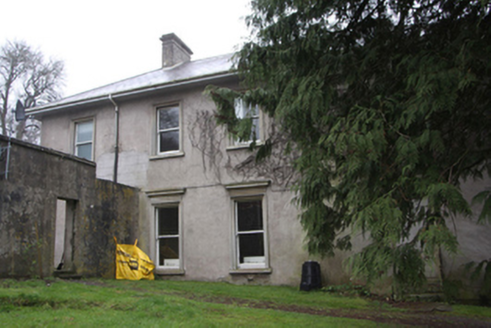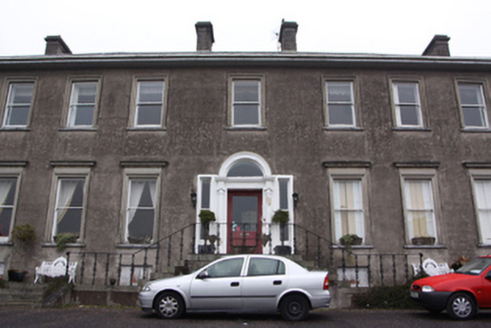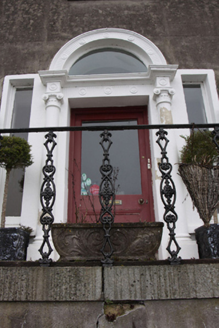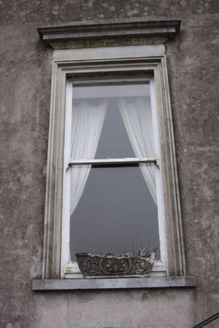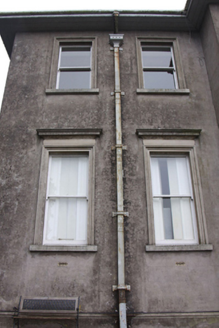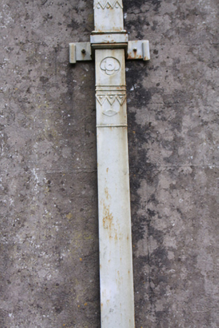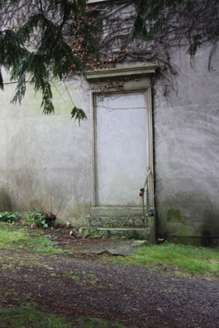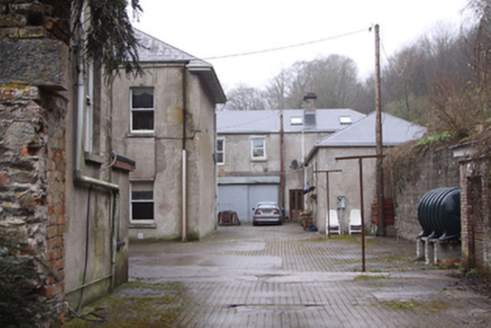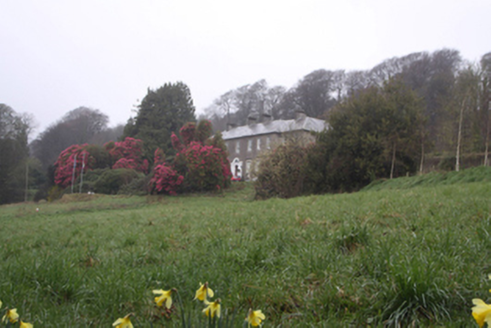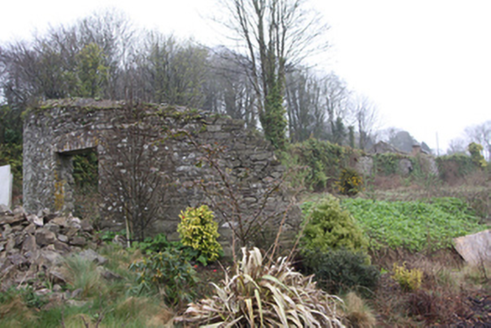Survey Data
Reg No
20864018
Rating
Regional
Categories of Special Interest
Architectural, Artistic, Social, Technical
Original Use
Country house
Historical Use
Guest house/b&b
In Use As
House
Date
1760 - 1800
Coordinates
171955, 72717
Date Recorded
29/03/2011
Date Updated
--/--/--
Description
Detached seven-bay two-storey over basement country house, built c.1780, having slightly recessed two-bay wings extended c.1880. In use for a time as guest house. Hipped slate roof with projecting timber sheeted eaves, rendered chimneystacks and cast-iron rainwater goods with hoppers and square profile down pipes having decorative details and brackets. Ruled-and-lined rendered walls with raised render plinth. Square-headed window openings having moulded surrounds, moulded cornice and fascia above first floor windows, limestone sills and one-over-one timber sash windows. Granite sills to later wings. Windows to basement are blocked up. Square-headed door opening flanked by engaged Ionic columns supporting moulded render fluted cornice above fluted fascia and archivolt to plain fanlight. Timber-and-glazed panelled door and fixed-light sidelights. Reconstituted stone perron to entrance having decorative cast-iron handrails and railings to landing. Blocked square-headed doorway to west elevation having moulded render surround with cornice above and retaining cast-iron handrail to limestone steps. L-plan two-storey outbuilding to north-west yard having hipped artificial slate roof and replacement timber sash windows, now in domestic use. Cast-iron fountain accessed by way of limestone steps immediately south of the house. Remnants of garden walls and extensive glasshouses visible to east of house.
Appraisal
Lotamore is an elegant classically proportioned house situated on an elevated site overlooking the River Lee. It retains many exterior details of significance, most of which were Victorian additions to the earlier Georgian house and display a very high level of craftsmanship. The survival of the highly decorative cast-iron rainwater goods and railings to the perron are of particular note. The cast-iron fountain is also of particular significance as an example of early mass-produced cast-iron work.
